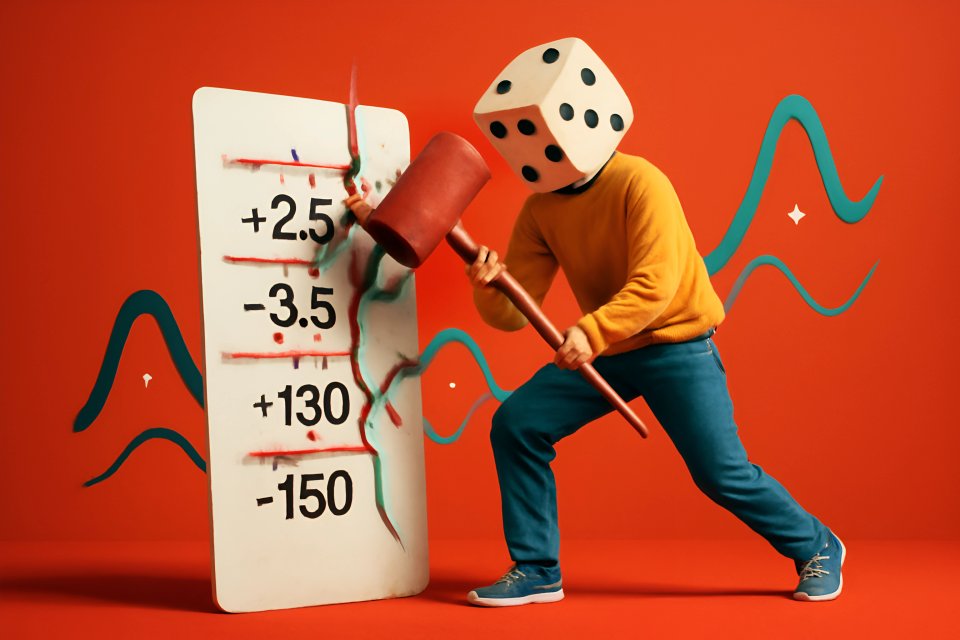
Ever felt the ground shift beneath your feet? That's precisely what's happened in the world of betting. The once-familiar paths have transformed, and understanding the stark contrasts between age-old wagering habits and the dynamic realm of modern sports betting isn't just helpful—it's absolutely crucial if you want to thrive, not just survive. Imagine the difference between a quaint village market and a bustling global stock exchange; that's the leap we're talking about.
So, what do we mean by "Traditional Betting"? Think of the classic casino floor: the hypnotic spin of the roulette wheel, the flashing lights of slot machines, the hushed intensity of a lottery draw, or even the old-school charm of fixed-odds betting in a dimly lit, physical shop. These are the games many grew up hearing about, often characterized by simpler rules and a heavy reliance on lady luck. According to insights from traditional gambling overviews, these methods have a long and storied history.
Then, there's "Modern Sports Betting." This is the new frontier, a digital arena powered by online platforms, where odds shift like desert sands, and a universe of diverse markets awaits your analytical prowess. Here, it's less about blind chance and more about skill, strategy, and deep-diving into data, as highlighted by the evolution of sports betting. The purpose of this post? To arm you with a crystal-clear betting comparison analysis. We'll dissect the betting advantages and pitfalls of each, empowering you to truly grasp the sports betting vs traditional betting landscape, looking at it from both a historical and a cutting-edge modern perspective.
What is Traditional Betting? A Look at the Classics
Defining Traditional Betting
Step back in time, and you'll find traditional betting. This is the bedrock of gambling, often taking place in established, physical locations or through state-run lottery systems. The core idea? You're usually up against games of pure chance or very straightforward fixed-odds scenarios.
The emphasis here is rarely on deep analytical skill from your end as the player. Instead, it's about the thrill of the moment, the simplicity of the wager, and the established customs of these games. As casino game encyclopedias detail, many of these formats have been around for centuries, their rules and appeal largely unchanged.
Common Examples of Traditional Betting
When you picture traditional betting, what comes to mind? For many, it's the vibrant, sometimes overwhelming, atmosphere of Casino Games. We're talking about the iconic Roulette wheel, the endless rows of Slot Machines, the strategic yet luck-driven hands of Blackjack, or the elegant simplicity of Baccarat. These are the mainstays of any brick-and-mortar casino.
Beyond the casino floor, Lotteries & Keno represent another massive segment, offering the dream of a life-changing win from a small stake, purely by chance. Then there's Pari-mutuel Horse Racing, in its classic, pre-online incarnation, where your odds are determined by the collective bets of everyone at the track. And let's not forget the Physical Bookmaking Shops of old, where punters gathered to place bets on sports with odds set by the house, a far cry from today's dynamic online markets.
Core Characteristics
So, what truly defines traditional betting? One of the most significant, yet often overlooked, characteristics is the typically higher house edge. This means, statistically, the odds are more tilted in favor of the "house" or operator over the long run. For instance, some casino games have a house edge that can be quite substantial, as noted in discussions on gambling mathematics.
On the flip side, many of these games boast simpler rules. You don't need a PhD in statistics to play a slot machine or buy a lottery ticket, making them incredibly accessible. There's also a undeniable social aspect, especially in physical casinos or betting shops, offering an experience that goes beyond just the wager itself. Finally, for the legal forms, there are usually established regulatory frameworks in place, providing a certain level of consumer protection and game integrity.
Advantages and Pitfalls of Traditional Betting
Advantages of Traditional Betting
Why do people flock to traditional betting, even with the odds stacked against them? One major draw is Simplicity & Accessibility, especially for games like lotteries or slot machines. You can walk in, understand the basics in seconds, and participate immediately. There's no steep learning curve, no complex strategies to master before you can have a bit of fun.
Then there's the Social Interaction & Atmosphere. Imagine the buzz around a craps table, the shared groans and cheers – it's an experience! Physical casinos and betting shops offer a communal environment that many find appealing, a stark contrast to the often solitary nature of online betting. As lifestyle articles on traditional betting often point out, this social element is a key part of its enduring charm.
And who doesn't love Instant Gratification? With many traditional games, like a spin of the roulette wheel or a scratch card, you get quick results. This immediate feedback loop can be incredibly engaging. Lastly, the Clear, Established Rules mean there are rarely any surprises; the game mechanics are generally well-understood and have been for generations.
Pitfalls of Traditional Betting
Now, let's talk about the flip side, the reasons why traditional betting might not be your path to riches. The most glaring pitfall is the Higher House Edge / Lower Return to Player (RTP). Statistically, you are less likely to come out ahead in the long term. For example, the house edge on American roulette is a hefty 5.26%, and for some slot machines, it can be even higher, meaning for every $100 bet, the casino expects to keep over $5 on average from roulette players.
Another significant drawback is the Limited Strategic Depth. For many traditional games, your success relies almost purely on luck. There's very little room for skill or analysis to influence the outcome, which can be frustrating for those who like to use their wits. This reliance on chance is a core characteristic, as detailed in overviews of gambling principles.
Furthermore, you're often bound by Geographical & Time Constraints. You typically need to be physically present at a casino or betting shop, which have specific operating hours. And finally, there are generally Fewer Options & Flexibility; the variety of bets or games is often limited compared to the vast universe of modern sports betting.
Understanding Modern Sports Betting: The Strategic Frontier
Defining Modern Sports Betting
Welcome to the cutting edge: modern sports betting. This isn't your grandfather's bookie joint. We're talking about a dynamic, digital-first world focused on wagering on the outcomes of countless sporting events. The real game-changer? The profound emphasis on skill, analysis, data, and strategy.
This form of betting is predominantly online, characterized by odds that fluctuate in real-time based on a multitude of factors, and an incredible diversity of markets. It’s a realm where knowledge isn't just power; it's potential profit. As sports betting encyclopedic entries explain, the advent of the internet fundamentally transformed this activity.
Key Characteristics of Modern Sports Betting
What makes modern sports betting tick? First, there's a Vast array of sports, leagues, and bet types. From NFL point spreads to Korean baseball totals, from tennis match winners to obscure prop bets on player performance – if there's a competition, you can likely bet on it. This sheer volume offers endless opportunities for specialization.
Then come the Dynamic odds, constantly influenced by market action, breaking news, and even weather forecasts. This fluidity means sharp bettors can find value. Crucially, there's an unprecedented Availability of data, statistics, and analytical tools, empowering bettors to make informed decisions rather than relying on gut feelings. The rise of In-play/live betting opportunities allows you to wager as the action unfolds, adding another layer of excitement and strategy. This aligns perfectly with the SportsBettinger ethos: an emphasis on research and informed decision-making.
Examples
So, where does this all happen? Primarily on Online sportsbooks. These are digital platforms where you can bet on everything from the NFL, NBA, and global Soccer leagues to Tennis, MMA, and even esports. Think of them as your personal gateway to global sports wagering.
Beyond standard sportsbooks, you have Betting exchanges, where you bet against other individuals rather than a traditional bookmaker, often finding better odds. And the bet types themselves have evolved dramatically. We're not just talking about who wins or loses anymore. Modern sports betting includes Advanced bet types like props (proposition bets on specific occurrences within a game), futures (betting on outcomes far in the future, like a championship winner), parlays (linking multiple bets for a higher payout), and teasers (adjusting point spreads for better odds on a multi-leg bet).
Advantages and Pitfalls of Modern Sports Betting
Advantages of Modern Sports Betting
Why has modern sports betting exploded in popularity? The allure is undeniable, especially for those who believe in the power of intellect over luck. One of the biggest draws is the Potential for Skill & Edge. Unlike games of pure chance, informed bettors can genuinely find value and, with discipline, potentially achieve long-term profitability. This is the core message we champion at SportsBettinger: your knowledge can be your advantage.
The Vast Market Variety & Bet Types are a massive plus. Whether you're an expert on Japanese J-League soccer or NFL player props, there's a niche for you. This specialization allows you to leverage deep knowledge in ways traditional betting simply can't match. And let's not forget Accessibility & Convenience; with online platforms and mobile apps, you can place a bet anytime, anywhere, a far cry from the geographical limitations of old. The growth of live betting further underscores this convenience, allowing engagement during the event itself.
Furthermore, the Information Abundance is staggering. Access to detailed stats, breaking news, and sophisticated analytical tools empowers you to make truly educated wagers. The thrill of Live Betting Excitement adds another dimension, letting you react to the game in real-time. Many sportsbooks also offer Bonuses & Promotions, giving your bankroll a potential boost. Finally, the ability for Line Shopping – comparing odds across multiple sportsbooks – is a critical advantage, ensuring you get the best possible price for your bet, a key strategy for maximizing returns.
Pitfalls of Modern Sports Betting
However, the path of a sports bettor is not without its thorns. The sheer Complexity & Learning Curve can be overwhelming for beginners. Understanding odds, different bet types, and analytical strategies takes time and effort. It's not as simple as pulling a lever on a slot machine.
Then there's the ever-present Risk of Emotional Betting. Letting your fandom for a team or biases cloud your judgment is a quick way to drain your bankroll. Chasing losses, another common psychological trap, can turn a small setback into a major disaster. The ease of access, while a benefit, can also be a double-edged sword, increasing the Potential for Problem Gambling if not approached with extreme caution and self-awareness. Responsible gambling resources highlight these risks clearly.
Information Overload/Misinformation is another hurdle. With so much data and so many "experts" online, sifting through the noise to find credible insights can be a challenge in itself. Above all, modern sports betting Requires Discipline & Bankroll Management. This isn't just a suggestion; it's essential for sustained success. Without a clear plan for how much to bet and when to walk away, even the sharpest analysis can lead to ruin. As bankroll management guides emphasize, this discipline is non-negotiable.
Sports Betting vs Traditional Betting: A Direct Comparison Analysis
To truly understand the betting comparison analysis between these two worlds, let's lay it out side-by-side. The differences are stark, highlighting why your approach to each should be fundamentally different. This table cuts through the noise, giving you the raw data.
Are you starting to see the chasm? One path relies on fortune, the other on foresight.
| Factor | Traditional Betting | Modern Sports Betting |
|---|---|---|
| Skill vs. Chance | Primarily chance-based (e.g., slots, roulette). Outcomes are random. | Skill-influenced. Analysis, research, and strategy can create an edge. |
| Information & Analysis | Generally minimal requirement. Rules are simple, outcomes are independent of analysis. | Crucial. Deep dives into stats, trends, and news are key to finding value. |
| Market Variety | Limited to specific casino games, lottery formats, or basic race bets. | Vast. Thousands of markets across global sports, leagues, and specific in-game events. |
| Accessibility | Often requires physical presence at specific locations and times. | Online 24/7. Bet from anywhere with an internet connection via desktop or mobile. |
| Return to Player (RTP) / House Edge | Generally higher house edge, meaning lower RTP for players over time. For example, American roulette has a house edge of 5.26% (source). | Potentially lower effective house edge for skilled bettors who can find +EV (positive expected value) bets. |
| Strategic Depth | Low. Most games have fixed strategies or are purely luck-based. | High. Involves odds comparison, bankroll management, situational analysis, and adapting to new information. |
| Social Element | Strong in physical venues (casinos, betting shops) through direct interaction. | Different form: online communities, forums, social media groups, but often a more solitary betting experience. |
This betting comparison analysis underscores a fundamental truth: your choice depends entirely on what you seek from your wagering experience.
Expert Opinions & Case Studies: Real-World Perspectives
Don't just take our word for it. Listen to those who live and breathe this world. A Seasoned Handicapper might tell you, "The beauty of sports betting is the intellectual challenge; it's a puzzle where research pays off, unlike the pure chance of a lottery ticket. You're pitting your wits against the market, and that's exhilarating." This sentiment captures the strategic appeal.
On the other hand, a Responsible Gambling Advocate would caution, "While sports betting offers strategic depth, the ease of online access means bettors must be more vigilant about responsible practices than perhaps in a traditional casino setting where physical barriers exist." This highlights the need for self-awareness, a point stressed by organizations like the National Council on Problem Gambling. The accessibility of modern platforms is a double-edged sword.
Let's look at some brief case studies. Sarah, a Traditional Bettor, enjoys the occasional trip to the casino. "For me, it's about the entertainment, the lights, the sounds, the social buzz of the craps table," she says. "I know the odds are against me, so I set a budget for fun, not for profit." Her approach is purely recreational. Mark, a dedicated Sports Bettor, spends hours analyzing Premier League matchups. "I use statistical models, track team news, and look for value in the odds," he explains. "For me, it's a strategic investment of my time and money, not just a casual flutter." His approach is analytical and disciplined, focusing on long-term strategy, much like the principles outlined in sports betting bankroll management.
Which Betting Style Suits You? Making an Informed Choice
So, after all this, where do you fit in? There's no single "better" option when it comes to sports betting vs traditional betting. The right choice for you hinges entirely on your individual goals, your tolerance for risk, and crucially, your desire for strategic engagement. Are you looking for a simple thrill, or a complex challenge?
If your primary aim is straightforward entertainment, a bit of fun where you understand the odds are stacked against you but enjoy the experience, then traditional betting might suffice. The flashing lights of a slot machine or the community feel of a bingo hall can be enjoyable pastimes if approached with clear financial limits. It’s about the experience, not necessarily the expectation of a win.
However, if you crave a strategic challenge, if you believe your analytical skills can give you an edge, and if you're prepared to put in the work, then modern sports betting is the arena for you. This is where research, discipline, and a deep understanding of betting advantages and pitfalls can potentially lead to more favorable outcomes. SportsBettinger is built on empowering informed, strategic sports bettors like you to navigate this exciting landscape.
Conclusion: Elevating Your Betting IQ in the Modern Era
We've journeyed through the distinct worlds of sports betting vs traditional betting, and the contrasts are clear. Traditional betting offers simplicity and a certain nostalgic charm, often rooted in games of pure chance with a higher house edge. Modern sports betting, however, opens up a universe of strategic possibilities, where knowledge, analysis, and discipline can genuinely influence your success. Understanding the betting advantages and pitfalls of each is not just beneficial—it's fundamental to making choices that align with your goals and protect your bankroll.
In the dynamic arena of modern sports betting, knowledge and strategy are not just buzzwords; they are paramount. The ability to dissect information, manage your emotions, and apply a disciplined approach separates the casual punter from the serious strategist. It's about elevating your betting IQ, transforming from a passive participant into an active, informed decision-maker. Are you ready to take that step?















